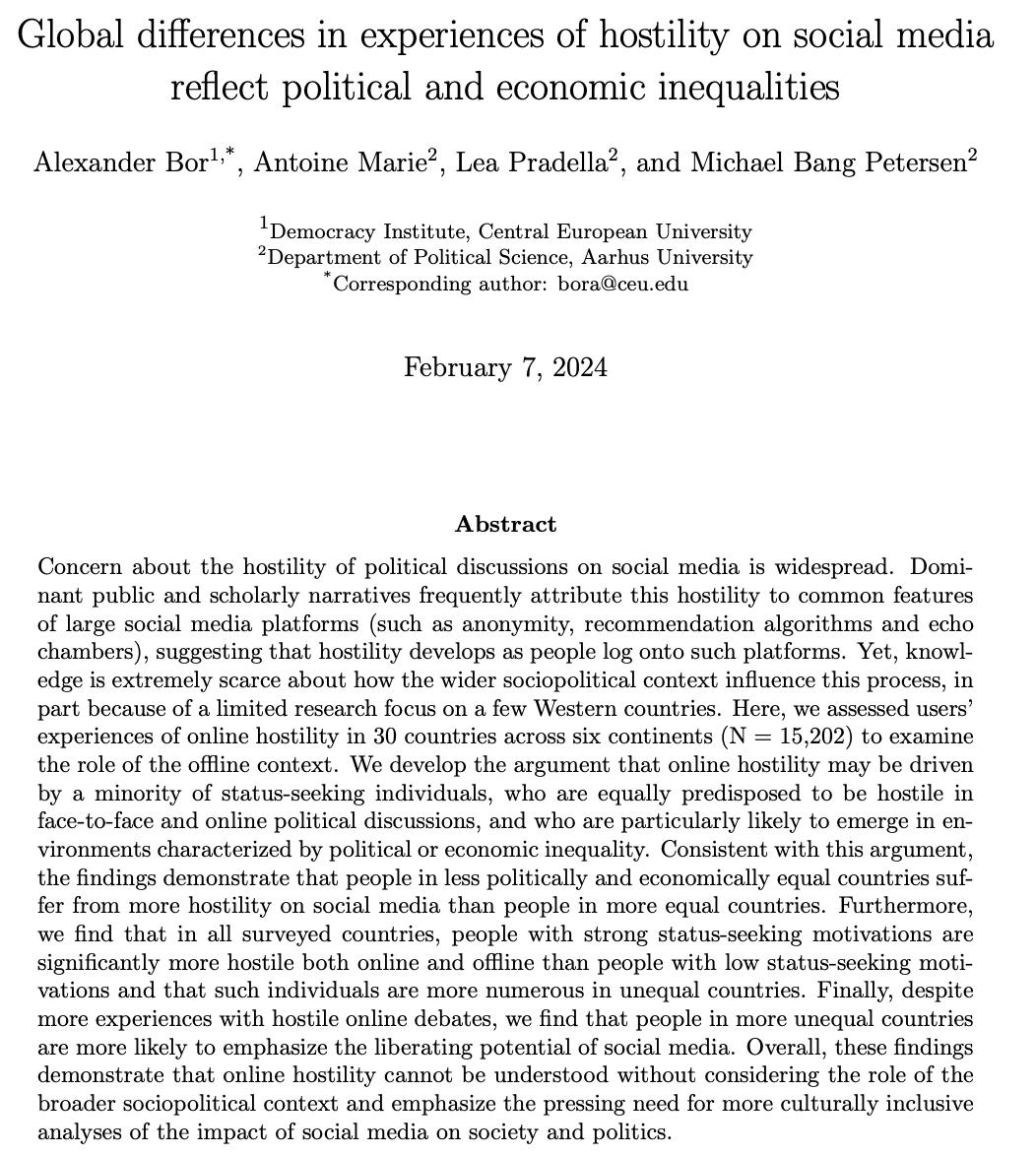Why are politics more toxic online than offline?
In a new paper in @apsrjournal, @boralexander1 & I give an answer: psyarxiv.com/hwb83/.
Status-seekers are hostile online & offline, but their online attacks are more visible. Nice people do not go crazy online.
🧵(1/10)
In a new paper in @apsrjournal, @boralexander1 & I give an answer: psyarxiv.com/hwb83/.
Status-seekers are hostile online & offline, but their online attacks are more visible. Nice people do not go crazy online.
🧵(1/10)

We use representative surveys from the US and Denmark to document that people perceive online environments as more hostile than offline. In figure, higher values equals more perceived hostility and dark gray plots show distribution for "online debates". (2/10) 

A common narrative, the mismatch hypothesis, says this reflects a mismatch between (a) a psychology adapted for face-to-face interaction and (b) the impersonal online environment. We test 3 versions of this hypothesis: Mismatched-induced change, selection and perception (3/10)
CHANGE: Do online environments induce hostility because nice people are less able to regulate their emotions online? No. People who report that they are hostile online also report that they are hostile offline. There are no differences across the two context. (4/9) 

SELECTION: Are online environments hostile because the setting is attractive to those predisposed for hostility? No. Hostile people (e.g., status-obsessed individuals) talk about politics whenever they can. However, non-hostile people seem to opt out of online debates. (5/9) 

PERCEPTION: Do people misinterpret benign intentions as hostile in online debates? No. When asked about own experiences, conflicts online & offline are perceived as equally severe. Using behavioural experiments, we also find no systematic bias in perceptions of SoMe posts. (6/10) 

What then explains 'the hostility gap'? Online environments do not turn nice people into trolls. Those who are mean to you online would be equally mean to you offline. Both online and offline hostility is driven by status concerns. (7/10) 

Rather than psychological mismatches, the gap seems to reflect *connectivity*: that the public nature of online discussions exposes people to way more hostile attacks directed against strangers. Offline, these are hidden to the public eye. (9/10) 

How to guard against online hate? It is not an 'accident' but a deliberate strategy pursued by status-driven people. While many do not personally fall victim to attacks, they are public, shaping overall perceptions. To reduce online hate, such people need to be contained. (8/10)
The paper is here as a preprint and soon in print at @apsrjournal: psyarxiv.com/hwb83/. For more, see this thread by @boralexander1 who got this 8 study monster of representative observations and survey & behavioral experiments over the line:
https://twitter.com/boralexander1/status/1417118939226808324?s=20. (10/10)
And the paper is now published: cambridge.org/core/journals/…. [11/10]
• • •
Missing some Tweet in this thread? You can try to
force a refresh













